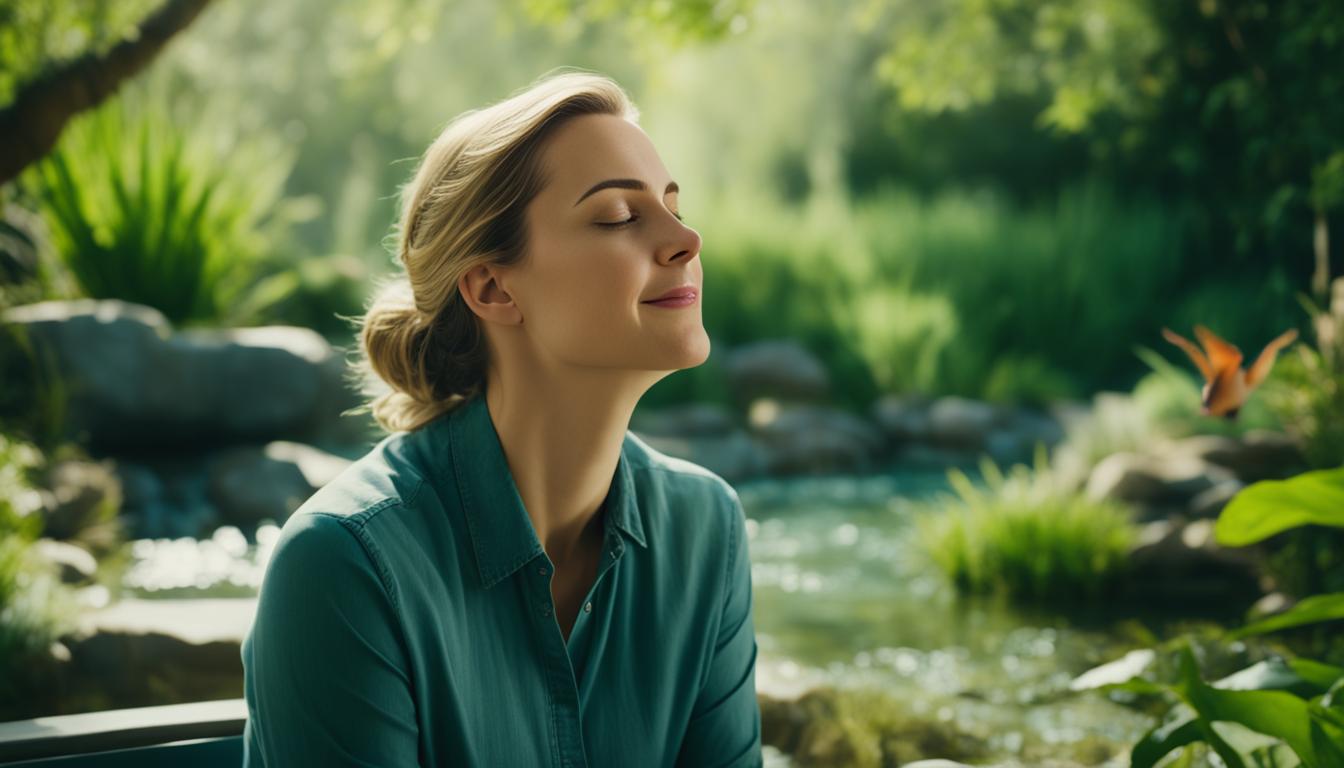Do you think about how stress affects our health and life? Many days, we miss the chance to have fun and relax because we’re always busy. The secret lies in finding balance between work and leisure moments to live well.
Here, we will discuss the importance of leisure in reducing stress. We will understand what stress is, what causes it, and how it affects our health. We will also see why it is essential to engage in leisure activities and learn to balance our daily lives with practical tips.
In the end, you will discover how to lead a more peaceful and stress-resistant life.
Key Takeaways
- The importance of balancing work and personal life for mental health.
- How leisure and free time can help reduce stress levels.
- Practical tips for making the most of your free time and developing healthy habits.
- The importance of self-care and mindfulness practices for a balanced lifestyle.
- Strategies for building a more stress-resilient lifestyle.
What is Stress?
Stress is the body’s reaction to challenges. Our body becomes alert, releasing hormones like cortisol. They help us deal with what is happening.
Although it is natural, too much stress can be bad for health. It affects our body and mind negatively.
Causes and Symptoms of Stress
Stress can come from many sources, such as excessive work and financial problems. It can also arise from relationship difficulties, abrupt life changes, and traumatic experiences.
The signs of stress are varied but generally include anxiety, irritability, and difficulty concentrating. Sleep problems, headaches, stomach issues, and muscle tension can also appear.
Impact of Stress on Health
Stress affects our health in various ways. It can cause heart disease, depression, and anxiety. It lowers our immunity and contributes to hypertension, diabetes, and obesity.
Therefore, it is essential to recognize the signs of stress. Balancing our lives and finding healthy ways to manage these pressures is crucial.
“Stress is the body’s reaction to any change that requires a response or adaptation.”
Benefits of Leisure and Free Time
Leisure and free time are crucial for our happiness. Doing what we enjoy brings many benefits of leisure and free time.
We reduce stress by having fun. This happens because our brain releases substances like serotonin and dopamine. These substances lower cortisol, which is the stress hormone. Thus, we feel calmer and happier.
Free time improves our mood. Whether practicing hobbies, sports, or spending time with loved ones, it is good for our minds. It does this by releasing neurotransmitters that make us feel more cheerful and satisfied.
Creativity and productivity also improve with leisure. Taking a break from stressful work allows us to see things from a new perspective. This leads to different ideas that can greatly help us in work and personal life.
Finally, leisure helps us get closer to people. Through activities with friends, family, or colleagues, we create bonds. These moments are essential for feeling part of something and being happier.
“Investing in free time is an effective strategy for dealing with stress and promoting overall well-being.”
Thus, we cannot underestimate the importance of leisure and free time. They not only entertain us but bring a range of improvements. From stress reduction to strengthening friendships and boosting creativity, it’s something we must value.
| Benefits of Leisure and Free Time | Description |
|---|---|
| Stress relief | Engaging in leisure activities helps reduce cortisol levels, the stress hormone. |
| Mood improvement | Engaging in pleasurable activities stimulates the release of positive neurotransmitters, such as serotonin and dopamine. |
| Creativity boost | Taking a break from stressful routines allows the mind to make unusual connections and generate innovative ideas. |
| Strengthening relationships | Shared activities with friends, family, or colleagues promote social interaction and a sense of belonging. |
Leisure and Free Time for Stress Reduction
It is crucial to use free time to reduce stress. This helps achieve a good work-life balance. Engaging in relaxing leisure activities greatly improves our well-being.
Relaxing Leisure Activities
There are many things we can do to relax. Some examples include:
- Meditation and mindfulness practices
- Light exercises like walking or yoga
- Hobbies like painting or gardening
- Social activities, like meeting friends
Balancing Work and Personal Life
To balance, it is important to set boundaries. Having time for work and rest is essential. This way, we can take care of ourselves.
- Establish healthy boundaries
- Prioritize leisure and self-care
- Communicate with coworkers about balance needs
- Learn to say “no” when necessary
Combining leisure with a good balance helps reduce stress. This leads to a healthier and happier life.

Tips for Making the Most of Free Time
With the world moving faster, knowing how to make the most of free time is crucial. Organize your time to have more good moments. This reduces stress and improves well-being.
Planning and Time Management
First, you need to define what is most important. This applies to both work and personal life. Then, plan your day or week to include leisure and self-care.
- Create a healthy routine with set times for work, rest, and leisure activities.
- Identify and eliminate unnecessary or time-consuming activities, prioritizing truly important tasks.
- Use small breaks throughout the day for relaxing activities like walking, reading, or meditation.
Another good tip is to ask for help when you can. This way, you have more time to rest and have fun. This ensures a healthier free time.
“The secret of happiness is not always doing what you want but always wanting what you do.” – Leo Tolstoy
Time management should be constant. Always look at your priorities. Make changes when necessary to balance and enjoy your time.
Developing Healthy Habits
It is key to create a healthy lifestyle to manage stress. This also improves well-being. Habits like eating well, getting enough sleep, and exercising are good. They make our free time more fulfilling. Additionally, they help reduce stress by taking care of mental and physical health.
Eating a balanced diet is very important. It should include fruits, vegetables, whole grains, lean proteins, and healthy fats. Choosing natural foods is essential. Avoiding processed foods and sugars helps keep energy levels stable and reduces stress.
Sleep is also fundamental. Having a routine with 7 to 9 hours of sleep per night is beneficial. It renews energy, improves concentration, and balances emotions, helping to face stress.
Engaging in regular physical activities is equally necessary. Aerobic exercises, such as walking, running, or dancing, make the body release hormones that improve mood. They also strengthen the body’s defense system against stress.
Incorporating these healthy habits into our lives is essential. We make good use of our free time. We reduce stress and build a healthy lifestyle that benefits our overall health.
“Health is the greatest wealth a human being can possess.” – Socrates
| Healthy Habit | Benefits |
|---|---|
| Balanced Diet | Provides essential nutrients, stabilizes energy levels, and improves mood |
| Adequate Sleep | Restores energy, improves concentration, and regulates emotions |
| Regular Exercise | Releases endorphins, strengthens the immune system, and reduces stress symptoms |
Importance of Self-Care
In a fast-paced and stressful world, taking care of oneself is crucial. Self-care helps maintain health, both physical and mental. It is not just about pampering oneself but ensuring balance and well-being. In this text, we will discuss how practices like mindfulness and meditation are essential.
Mindfulness and Meditation Practices
Mindfulness and meditation are excellent for dealing with stress. They teach us to focus on the present moment. This way, we become more aware of our thoughts and emotions. It helps us manage stress and think more positively.
- Meditation calms the mind and improves concentration.
- Mindfulness teaches us to focus on the present without worrying too much about the past or future.
- Both practices help us know ourselves better, become more understanding, and stronger in the face of challenges.
Regular self-care, mindfulness, and meditation help significantly. They create a more balanced lifestyle. Thus, we reduce stress effects and improve our overall health.
“Self-care is not selfish; it is self-preservation.”
Do not forget to take care of yourself. Try self-care, mindfulness, and meditation. See how your life can change for the better, bringing more serenity and health.
Building a Balanced Lifestyle
Developing a balanced lifestyle is essential. It requires properly balancing time between work, fun, and self-care. This means knowing what is most important and setting aside time to relax and feel good.
Living a balanced life requires daily effort. We must take care of our bodies, minds, and emotions. This includes exercising, having hobbies, spending time with friends, and engaging in calming activities like meditation.
Finding a balance between professional and personal life reduces stress. It improves our lives and makes us feel happier. Thus, knowing how to use our free time to rest and have fun makes it easier to face challenges with optimism.



https://t.me/s/Beefcasino_rus
Thanks for sharing. I read many of your blog posts, cool, your blog is very good.
888win10, huh? Heard some whispers about this place. Been meaning to check ‘em out. Anyone had any luck over there? Might be time for a cheeky spin! Check out 888win10.
Your point of view caught my eye and was very interesting. Thanks. I have a question for you. https://www.binance.info/register?ref=IHJUI7TF
Thank you for your sharing. I am worried that I lack creative ideas. It is your article that makes me full of hope. Thank you. But, I have a question, can you help me?
Your point of view caught my eye and was very interesting. Thanks. I have a question for you. https://accounts.binance.info/register-person?ref=IHJUI7TF
I don’t think the title of your article matches the content lol. Just kidding, mainly because I had some doubts after reading the article. https://www.binance.info/sk/register?ref=WKAGBF7Y